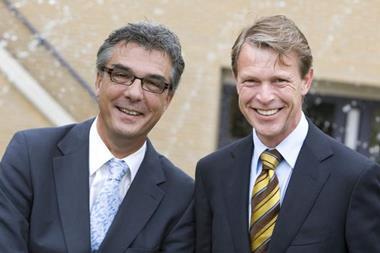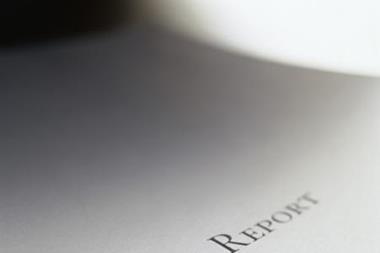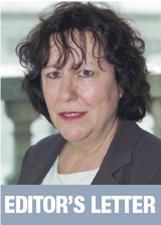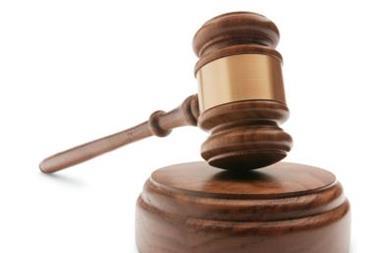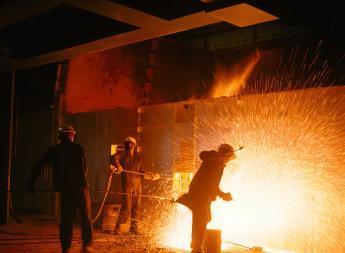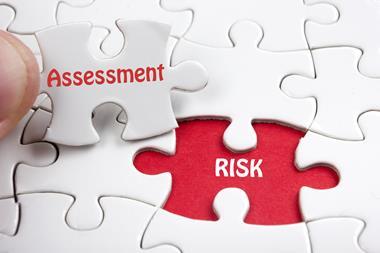In managing risks to reputation in an age of globalisation, close analysis of information is vital says Michael Howard
What do you think are the key risks facing European businesses today?
Michael Howard: As your own publication has pointed out, reputational risk is one of the greatest risks facing business today. And I believe that we are able to help people with that.
We live in an age of globalisation, which creates its own dynamic. It means that people do business today with people and companies that they may know little about in countries they may know little about. One of the most important functions we fulfil is providing European companies with the information they need to do business with confidence with those people and companies and in those countries of which they would otherwise know little.
Reputation risks and globalisation risks are, in a way, two sides of the same coin. If a company wants to enter into a relationship with a company in a different part of the world, perhaps in one of the emerging markets where things may not be as transparent as they are in Europe or in other countries with which they are used to dealing, they need help to find out about the reputation of the people they are dealing with. If they are planning to make an investment in a bank or whatever in one of the emerging markets of the former Soviet Republic, Africa, or indeed anywhere else, they want some assurance that the people they are dealing with are people of integrity, and it is not always easy for companies to find that information.
Information is hugely important. It is extremely valuable, and companies who are focused on their activities, on the kind of thing that they do and service they provide or the things they sell, do not necessarily have the time, inclination or expertise to find the information they need in order to be focused in such a way as to minimise reputational risk. We do that work for them.
How well have such companies been dealing with the globalisation and reputational risks? Are we likely to see any headline horror stories?
Michael Howard: Increasingly, major banks and telecommunications companies are employing organisations like us so that they can be armed against any nasty surprises. But nobody knows. No system is perfect, and you can't be sure nothing will happen. We have come across a number of examples where incidents have nearly happened and were stopped at the eleventh hour.
Diligence's work has a strong focus on globalisation risks. But do you think it is likely that the huge trend in, for example, outsourcing to emerging markets could reverse?
Michael Howard: Some companies are reversing their policy on outsourcing and bringing some operations they have outsourced back into their own country. But the net trend is still the other way and will continue, because there are other parts of the world where goods, and sometimes services as well, can be provided much more economically by people in those countries. I do not think that is doom and gloom. It is part of globalisation, part of the division of labour. We have to keep ahead of the game and it makes sense to concentrate on the things that we are best at - to develop our advantages and make sure we are in a position to benefit from the increased world trade.
I am always struck by the fact that hardly anyone mentions that, in the last ten to 15 years, we have seen the greatest reduction of poverty ever in the history of this planet. Hundreds of millions of people, mainly in China and India, have escaped poverty. They may not have become rich but they are not poor. That is something we should be proud of. So I think globalisation is overwhelmingly a force for good and brings with it huge opportunities. But there are risks which accompany the opportunities and we exist to help people manage those risks.
Inevitably, you will be looking at companies and people in countries which don't adhere to western standards and practices. How do you deal with the fact that what is acceptable there may not be so to western eyes?
Michael Howard: We do not take the decisions. We report to our clients on what we find. Then it is for our clients to decide whether they are comfortable in proceeding with that kind of business enterprise or not.
What do you think differentiates Diligence?
Michael Howard: We think it is the quality of our work and the way that we produce and analyse business intelligence. Information analysis is very important. If you ask most, if not all, the individuals who are responsible in companies for managing the kind of risks we are involved with, they will say that what is lacking in the market is good analysis of information. We pride ourselves on our analysis and business intelligence.
We reckon that we are the fastest growing company in this field. But it is a vastly expanding field and there is room for all of us.
Can you give a specific example of how Diligence can help business?
Michael Howard: To give one specific example of the kind of thing we do, the London Alternative Investments Market (AIM) has just produced new rules and is tightening up on the requirements which it is putting in place for companies that are going to AIM. Nominating advisers (Nomads) who have the responsibility of bringing these companies to the market and preparing them have to be more rigorous on the checks on the backgrounds of these companies than perhaps they were before. We held a seminar for AIM nomads on the services we can offer which can play a very important part in reinforcing the integrity of the AIM.
These might be companies from the emerging markets, and the transparency of some of these markets is not always up to the standards we are used to in this country. So there is a real need for the services of firms like Diligence in that particular area. It is a very important example of the broader kind of point I have made.
Leaving aside Diligence's US operations, where do most of your European clients come from?
Michael Howard: London is increasingly regarded as the financial capital of Europe and to some extent the business capital of Europe, so it is fair to say that the biggest source of our business is London. We have a mix of international clients from many different areas, we deal with people in a wide range of roles. For example every investment bank has a different approach to managing risk and each will approach managing reputational risk in different functions.
After your distinguished political career, what made you decide to focus on this kind of business area?
Michael Howard: After I had handed over leadership of the Conservative party to David Cameron, I was looking for business opportunities. I find this particular area exceptionally interesting. I know that we are providing a real service to our clients, a service which is absolutely essential in the modern age - the age of globalisation.
About Diligence
What it does: Business intelligence and information analysis are the king pins of Diligence's services. These have applications for a wide range of business operations and initiatives, says Russell Corn, managing director, Europe. In addition to protecting reputation, some due diligence and investigations are conducted with the aim of helping clients secure more competitive and better deals, of understanding more clearly the joint venture partner they are planning to do business with and also understanding the countries into which they are considering expanding. The firm also conducts investigations relating to brand and intellectual property protection, often in China and India, provides assistance for investors who may consider that there are potential problems which are not explained in the investee company's figures, fraud detection and prevention, and advice and support on regulatory, IT, employee, kidnapping and terrorism, and political risks.
How it investigates: Corn explains, "We start by looking at what's in the public domain, so-called 'open source' material. In the age of the internet there is a great deal of information in the public domain, but in order to make it intelligible you need expertise and experience.
"People are sometimes quite disparaging about open source information, but if you have people with the right skill sets - local language experts, people who can do blog crawling - it helps to ascertain what the real picture is. Of course, a problem with open source information is that it can be relatively easily manipulated, particularly in emerging markets. Sometimes stories are placed in the media for political or commercial ends. So you need to be able to pick your way through to find out the truth.
"After that, there are various other ways we can take an investigation forward. One of the things we do, with our client's permission, is to interview directly anyone that our client may have concerns about, and ask them about the areas of concern.
"We tend to do most of this work ourselves and to keep subcontracting to a minimum. We know of at least one instance where a company subcontracted out its research to the point where the company employed by the client did not control the methods being used. So we keep our research tightly knit and close to home.
"From this initial period of research, we can build a picture and then can go direct to the individuals themselves, with our client's permission."
Who and where it is: Diligence's team represents around 12 different nationalities, and is fluent in over 40 languages. The firm has operated in over 60 countries and, in addition to the US, has offices in Brussels, Moscow and Berlin.
About Michael Howard
The Rt Honourable Michael Howard QC MP, the former leader of the Conservative Party, was appointed chairman of Diligence Europe in June 2006. He also serves on Diligence's senior advisory board.
Michael Howard, a distinguished lawyer, has filled many UK government posts, including Home Secretary, Secretary of State for Employment and Secretary of State for the Environment. Since leaving office he was Shadow Foreign Secretary and then Shadow Chancellor. He resigned as leader of the Conservative Party after the last election, and will not be contesting his parliamentary seat at Folkstone and Hythe at the next UK general election.





